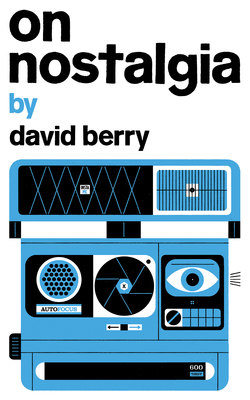Читать книгу On Nostalgia - David Berry - Страница 6
На сайте Литреса книга снята с продажи.
ОглавлениеIntroduction:
Play It Once Again
In the song ‘Heaven,’ David Byrne sings about paradise as a place where nothing ever happens. Though it is not really nothing – it’s nothing new. The band here plays his favourite song over and over, at the same party, and it ends with a kiss that, when it ends, will start again, ‘will not be any different / … will be exactly the same.’ I don’t believe there is much of anything after we die, but if there is anything like heaven, I am not sure how it could be anything but our greatest hits – maybe just our greatest hit – on infinite repeat. Everything else carries the potential for disappointment; we can’t know what we will like the most, only what we did like the most.
As with most Talking Heads songs, this is not a straight-forward endorsement. There is a folk theory that the proper way to understand the album that ‘Heaven’ appears on, Fear of Music, is to add ‘Fear of’ to each of the song titles: the benign nouns then become the paranoiac’s fear of cities, fear of air, and, thus, fear of heaven. This sense of unease creeps into the lyrics, too: Byrne repeats, ‘It’s hard to imagine / That nothing at all / Could be so exciting / Could be this much fun.’ And of course the same perfect moment in perpetual loop is horrible: it’s death. Quite literally, if you believe in this kind of heaven, but obviously in the metaphorical sense, too. Nothing is so definitive until there is no more of it.
‘Heaven’ – the song – happens to feature in one of my best memories, a fuzzy soundtrack to wee small hours hazily enraptured, utterly unaware of what came before and what was to come, a moment so obvious I did not take note of it; it just seeped its way into me and has never bled out. But I am not here to get lost in my own nostalgia, even if this little anecdote probably explains far more about why I would pick this particular song than my explanation will.
There is in ‘Heaven’ what I think of as the ultimate tension of nostalgia. It is a feeling that maybe feels too good, something that is so obviously appealing we can’t help but be a little wary of it. We know it is severely limited, ending exactly when the kiss ends, leaving out every part before and after that either made it meaningful or cracked the moment. And yet no amount of rational defence can prevent it from returning, nor feeling every bit as right as it did the last time.
It’s tempting here, for the sake of the parallel, to claim that it’s hard to imagine how something so obviously blinkered and ultimately impossible could grab a hold of us, but it isn’t, even a little bit. Our lives are a relentless push forward, and even if the path ahead is bright and brilliant, it will be littered with loss. Everything is fleeting, everything must pass, and the idea that we might every so often stop and look back and hope more than anything that we could have even the smallest part of it back seems as natural to me as the fact that we will never, ever be able to.
It’s this duality that draws me to nostalgia, the impossibility and the inevitability, the fact it just keeps happening even though it can’t. There is some sense now, I think, that nostalgia is a more prominent, more powerful force now than it has ever been. That is probably true. But surely the desire to go back has been and will be with us for as long as we go forward – surely there’s a reason we made it possible to play the same song over again.
